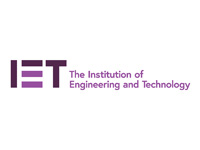Rishi Sunak’s recent announcements have ushered in significant changes to the UK’s approach to achieving net zero carbon emissions and reducing energy consumption. The key policy changes outlined in his speech are as follows:
Boiler Upgrade Scheme (BUS) Grant Increase: A central policy shift involves a substantial increase in the grant available through the Boiler Upgrade Scheme, with the grant raised from £5,000 to £7,500. This increase in financial support aims to make the transition to low-carbon heating, particularly heat pumps, more accessible and affordable for homeowners.
Delay in Phasing Out Fossil Fuel Boilers: Sunak has pushed back the timeline for phasing out oil and gas boilers, marking a significant departure from the previous commitment to expedite this transition. The new deadline for the ban on the installation of oil and gas boilers is now set for 2035, offering households and businesses additional time to shift towards greener heating options.
Delayed Ban on Petrol and Diesel Cars: In alignment with the extended timeline for fossil fuel boilers, the ban on the sale of new petrol and diesel cars has also been postponed until 2035. This decision represents a shift in the government’s previous stance on rapidly promoting electric vehicles as a means to reduce emissions.
These policy changes have ignited a range of reactions within the industry and among experts and advocates. These perspectives highlight both the opportunities and challenges presented by Sunak’s announcements:
The increase in the BUS grant from £5,000 to £7,500 has been welcomed as a positive step by some. Organisations such as the Microgeneration Certification Scheme (MCS) and Henrik Hansen, Managing Director at Vaillant Group UK & Ireland, have praised this move for making low-carbon heating solutions more accessible to homeowners. They see it as a vital step toward achieving national decarbonisation goals.
Industry debate
While the extension of the deadline for phasing out oil and gas boilers provides some relief to homeowners and businesses, it has sparked debate within the industry. Critics argue that this delay may hinder progress toward net zero targets, potentially making future measures more drastic and costly. The focus on clarity and consistency in policy is highlighted as crucial.
The Environment All Party Parliamentary Group (APPG) has expressed concerns about the policy changes, particularly the delayed deadlines. They argue that any delay in net zero commitments may negatively impact jobs, investments, and economic growth. Some have called for science-led rather than politically-driven responses to climate change.
Industry leaders, including representatives from the UK Green Building Council, the Federation of Master Builders, and the Building Research Establishment, have expressed frustration and concern. They stress the importance of consistent, long-term policies for reducing carbon emissions and improving energy efficiency. Delays in green policies are seen as potentially driving up costs and damaging investor confidence.
Energy UK CEO Emma Pinchbeck highlights the damaging effects of sudden policy changes on investment, innovation, and the transition to low-carbon technologies. Certainty and stability are considered essential for businesses to invest and innovate in areas such as heat pumps and electric vehicles.
The Electrical Contractors’ Association (ECA) emphasises the need for investment in skills to boost efforts toward green technologies. Andrew Eldred, ECA’s Director of Workforce and Public Affairs, underscores the importance of core competence in installing low-carbon technologies safely. Furthermore, Paul Reeve, ECA Director of Corporate Social Responsibility, advocates for a technology-agnostic approach, focusing on the most energy-efficient solutions. He highlights the need to significantly ramp up the UK’s electric vehicle charging infrastructure to satisfy customer demand and meet crucial safety standards.
Differing perspectives
In summary, Rishi Sunak’s recent policy changes, including the increased BUS grant and the delays in phasing out fossil fuel boilers and traditional cars, have elicited a range of responses within the industry. These reactions reflect differing perspectives on the implications of the changes, with some limited welcoming of specific measures, while others are highlighting the need for clarity and consistency, and many expressing concerns about the potential impact on progress toward net zero goals and the economy.
The JIB and ECS will be continuing to push for increased skills and competence in areas of low-carbon skills, as part of industry alignment on an Electrician+ model for qualified and competent ECS gold card Electricians, as part of the wider industry initiatives. To find out more on the benefits of recording and verifying CPD on low carbon technologies on ECS accounts, please visit the ECS website.







